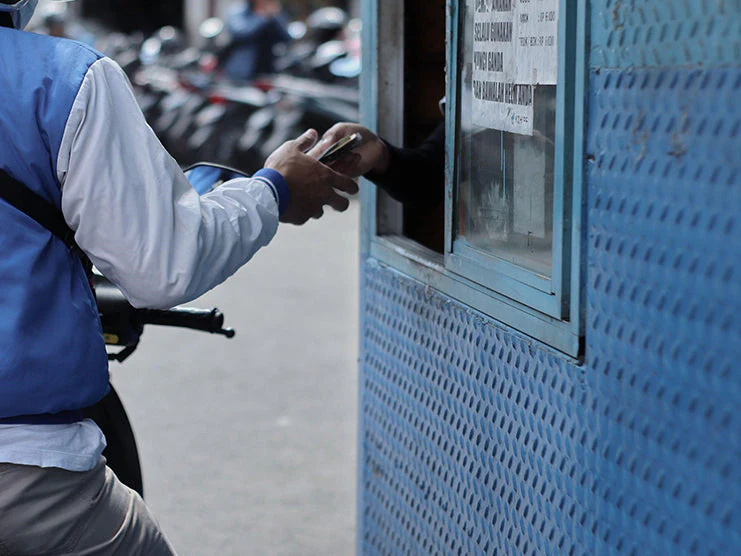Motorcycle enthusiasts love to explore. The allure of the unique culture, landscape, and motorcycle destinations compels them to embark on an international motorcycle tour. But international travel is not all about adventure and excitement. Riders also have to navigate other challenges, such as completing the travel paperwork, temporarily importing the bikes into the country, understanding cultural differences, learning traffic rules and regulations, and dealing with legal/ethical issues. But one of the biggest challenges faced by American motorcyclists during an international trip is dealing with bribery and unabashed corruption, especially when traveling to third world countries. Bribery is a social anathema and must not be condoned by the society as it undermines the integrity of local communities and the rule of law. Unfortunately, it continues to prevail in many countries. This article delves into the bribery culture abroad and aims to provide practical strategies that motorcycle enthusiasts can apply to navigate it.
Table of Content
1. Things to Know About Bribery Culture Abroad
Bribery is a legal offense in all countries that have a structured legal system and anti-corruption policy. Still, it is a common practice in some countries, while in others it is a serious offense. One of the main reasons why bribery prevails is lack of accountability. For example, if a country has smart surveillance systems to record the activities of drivers and law enforcement officers, there will be a lesser chance of bribery.
On the other hand, if the officers and drivers are certain that they will get away with the exchange of bribes, they are likely to indulge. Hence it is important for riders to research about the local perspective by reaching out to local motorcycle communities. These communities will certainly help you address and navigate this problem during your visit.
1.1 Common Situations Where Bribery is an Issue
Many motorcyclists traveling abroad report that police officers stop them on the road and demand for money without explaining which rule was broken. But bribery is not only restricted to roads. You may have to navigate it when getting permits, motorcycle custom clearance, seeking help from local officials, during passport and visa verification, and registering complaints about theft, fraud, or extortion.
1.2 Consequences of Engaging in Bribes
In some cases, you may find local officials who are not corrupt, holding you responsible for your mistake. Since legal fines can be high, travelers tend to pay a small percentage of the fine in terms of bribes to get out of a situation. This practice is prevalent in countries that are ill-famed for a weak legal system. But if the individual officer you are trying to bribe considers it an offense, you might have to pay hefty fines or face imprisonment and other legal repercussions. Remember, anti-bribery laws exist in some form or the other in almost every country. Just because an offense is common does not mean it will always go unpunished. Hence, it is best to not violate local rules and regulations, ensure that you don’t trespass into no-go areas, and avoid bribery in all cases.
2. Strategies to Avoid Bribes While Traveling
When traveling to a foreign country, you need to prepare the paperwork, plan your stay, itinerary, and also prepare how to deal with corrupt officials. Here are some ways you can prepare to deal with bribes before during international travel.
2.1 Research Laws in the Area
It is quite difficult to research and remember all the anti-corruption laws in the country. The best approach is to research the laws in the specific area you plan to visit. Thanks to digital legal platforms, you can reach out to local lawyers to get an understanding of the legal landscape in a particular area. You can also reach out to locals and motorcycle communities in the area via social media platforms.
2.2 Complete Your Travel Paperwork
Make sure you prepare all the legal documents before embarking on international travel. You should have your valid passport, visa (if required), valid international driving license with motorcycle endorsement, carnet de passage en douane, vaccination proof, and motorcycle vehicle registration. It is best to not give the official a chance to capitalize on and demand bribes.
2.3 Avoid Potential Bribery Spots
Locals can help you identify the areas where there is a higher risk of bribery. When riding to these places, it is best to have a group of locals with you for support. Or you can choose other routes where there is a lesser chance for an official to demand bribes.
3. What to Do When Forced to Pay Bribes
Once you find yourself in a situation where the official is seeking a bribe, apply the following strategies. Paying a bribe should always be your last recourse.
3.1 Pay as Little as Possible
Never take out your real wallet full of cash and functional credit/debit cards in front of a bribe-seeker. Prepare a second wallet with a few bills, receipts, and one debit card you no longer use. When traveling abroad, make sure you have a key lockable motorcycle luggage bag with a hidden inner pocket where you can safely hide your wallet.
3.2 Protect your Passport and License
Never let the bribe-seeker get his hands on your passport or license. Some people tend to take these documents, confiscate them, and then search you. At times framing you by foisting counterfeit currency, weapons, or narcotics on you. Carry a laminated colored copy of your passport at all times and also make digital copies of your passport. If they demand for the original passport, simply inform them that they can contact the embassy for verification.
3.3 Ask for a Proper Receipt
When a police officer stops you for an offense and demands a bribe in the garb of a legitimate fine for the committed offense, ask them for a receipt with an official stamp. You can use their receipt later to report bribery if the official used a fake stamp.
3.4 Involve Locals
You can pretend that you are unable to understand what the official is saying and involve locals for help. Pretending that you don’t know English may also help.
3.5 Insist on Procedure
Bribe-seekers use many tactics to get you to pay. They may hold you accountable for an offense you didn’t do. And even if you committed a mistake such as parking in a prohibited area, they may exaggerate the fine compelling you to pay a bribe instead of the legitimate fine. It is advisable that you insist on paying the fine. You will find it to be a lot less than what the officer made it out to be.
4. Steps Being Taken to Curb Bribery
Countries are now making collective efforts to curb corruption and bribery, ensuring a safe traveling experience for visitors. These efforts have resulted in various international conventions being organized and agreements being signed. The Foreign Corrupt Practices Act and the United Nations Convention against corruption are two prominent examples of frameworks developed to promote accountability and curb bribery.
5. Ethical Responsibility of Travelers
While it is the duty of the law enforcement of a country to ensure that travelers are not harassed and forced to pay bribes, travelers also have an ethical responsibility to help a society fighting bribery and corruption. Travelers are usually protected by stringent international laws and if someone wrongfully demands bribes, they are better equipped to resist such demands. You can invoke higher powers and suggest a visit to your country’s embassy to report the incident, a strategy not available to all locals. Try to uphold the standards you practice in your own country. It is worth mentioning that sometimes on-duty police officers may be drunk or unusually aggressive. If they threaten, manhandle, or try to force money out of you, pay it, and report immediately. At times, dacoits and criminals dress up as police officers and extort money from travelers. Hence, threatening or fighting back in such circumstances can be dangerous. Paying bribes in a violent scenario is considered an act of self-defense under the doctrine of necessity.
5.1 Where to Report the Bribe-Seeker
In some countries, briber-seekers and similar incidents can be reported and are investigated by special agencies. The appropriate forums to report bribery vary depending on the country you are traveling to and the nature of the reportable incident. Approaching the right forum for redressal is important, especially in countries where rule of law is weak. Oftentimes a matter is dismissed for approaching the wrong forum, lack of jurisdiction, and other legal technicalities.
Agencies who you can report to include:
Local Law Enforcement/ Police
Naturally, local police should be approached first for investigation and redressal. In some countries, you can also report the matter to local law enforcement agencies specializing in investigating corrupt practices and misconduct of public officials. Such agencies have anti-corruption wings for speedy redressal.
Ombudsman
In some countries, there are federal and provincial (regional) ombudsman offices. An ombudsman has the authority to investigate and file complaints against powerful officers and even organizations. When an officer is found guilty, the ombudsman has the power to pronounce the quantum of sentence. The ruling of the ombudsman is legally binding.
Anti-Corruption Agency
In some countries, anti-corruption agencies work as an independent organization dedicated to combating bribery and other forms of corruption. The officers investigate bribery-related matters and refer the matter to court for penalty. Some agencies are authorized to handle the reports of different government officials and have the authority to recommend their suspension orders based on misconduct. Prominent examples of anti-corruption agencies are:
- Independent Commission Against Corruption in Hong Kong
- Corrupt Practices Investigation Bureau in Singapore
- National Supervisory Commission in China
- Malaysian Anti-Corruption Commision
- Agence Francaise Anti-Corruption in France
Consulates and Embassies
As a foreigner, you can report the bribery incidents in your country’s embassy established in the host country. Your embassy or consulate office can provide you legal assistance and can also guide you to the right forums in the host country having the authority to investigate such incidents.
Hotlines
You can also use whistleblower hotlines in the host country to report the matter anonymously. These forums work best when you want to report a bribery incident you witnessed in the host country. The hotlines will keep your identity hidden and investigate the matter independently.
International Regulatory Bodies
The International Code for Protection of Tourists (ICPT) passed in 2021 by the United Nations General Assembly offers protection to tourists in business transactions and contracts. If the bribery involves a multi-national company, cross-border project, then the matter will be resolved via Alternative Dispute Resolution Mechanism to protect your rights and also prevent unnecessary legal implications. So if you are a motorcycle enthusiast who deals in aftermarket parts or motorcycles in countries abroad, the ICPT gives you the much-needed protection, allowing you to enter in a safe transaction and navigate issues such as bribery.
Non-Governmental & Human Rights Organizations
Non-governmental organizations are actively working to promote the rule of law in countries where corruption is prevalent. Many advocates form advocacy groups to fight corruption in the country. These organizations and groups may have the resources and knowledge to help you report a bribery-incident. You can reach out to these organizations online or in person for guidance and redressal. Through these organizations, you can submit all the evidence and information securely.
Fraud Offices and Federal Bureau of Investigation
In some EU countries and the United Kingdom, corruption and bribery cases fall under major criminal acts and are dealt with by the Federal Investigation Bureau. These countries may also have a separate Serious Fraud Office to report matters involving a high-ranking official.
Prosecution Office
In Japan and Finland, prosecutors are responsible for investigating bribery cases and misconduct of law enforcement officers.
6. Takeaway
As discussed, bribery is a common issue around the world and it may not be completely eradicated. Dealing with bribery abroad is an individual experience as the offense arises in different places and forms. Hence, there is no one right answer about how to navigate it. If you have committed a mistake, it is best to pay a legal fine instead of a bribe to get out of the situation. On the other hand, if an official demands bribes taking undue advantage of his position, try to resist as best you can. Otherwise, the official will just continue to do the same with other travelers, who might not be able to pay him. However, if you feel that the situation is turning into a fight or a heated argument, just pay the money to get out of the situation and if possible report the person.













Leave a comment
All comments are moderated before being published.
This site is protected by hCaptcha and the hCaptcha Privacy Policy and Terms of Service apply.